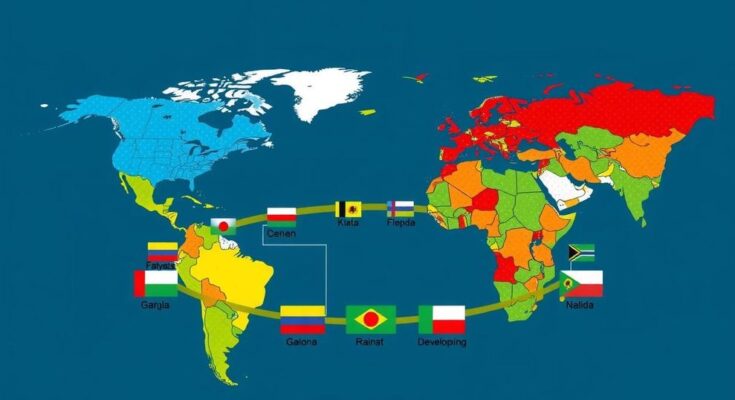Wealthier nations are increasingly compensating poorer countries for climate change damage, as demonstrated by Cyclone Freddy’s devastation in Malawi. A pioneering $750 payment helped a farmer rebuild after losing his home, yet experts warn current pledges of $720 million are insufficient given the rising frequency of catastrophic weather events. Ongoing negotiations at the COP29 summit aim to define funding allocation for climate-related damage.
As severe climate change impacts escalate, wealthier nations are beginning to provide compensation to poorer countries specifically affected by natural disasters. Following the devastation caused by Cyclone Freddy, which severely impacted southern Malawi, subsistence farmer Christopher Bingala received approximately $750 as part of a pioneering scheme for ‘loss and damage’ payments. This initiative aims to help low-income nations that contribute minimally to climate change but endure its most brutal consequences. Despite pledges totaling around $720 million from various nations, experts caution that these funds will be inadequate amidst increasingly frequent extreme weather events. Negotiations are currently underway at COP29 in Baku, Azerbaijan, to finalize which nations qualify for support and the criteria for compensation, highlighting the pressing financial responsibilities of developed countries.
The phenomenon of climate change disproportionately affects poorer countries that are already facing economic challenges. As severe weather events become more frequent, such as Cyclone Freddy, the need for financial assistance for rebuilding and recovery becomes dire. The establishment of a dedicated fund to address ‘loss and damage’ compensates those nations that have historically contributed little to greenhouse gas emissions yet suffer significantly from climate impacts. The funding discussions at COP29 reflect a larger movement towards equitable climate finance, with expectations of a significant increase in required support as global temperatures rise further.
In summary, while initial progress has been made with the establishment of compensation funds for climate-induced damages, significant gaps remain in both financial commitments and the implementation of support systems for affected low-income nations. As climate crises continue to intensify, it is imperative for wealthier countries to increase their contributions and fulfill their responsibilities. The plight of individuals like Christopher Bingala illustrates the critical importance of timely and adequate financial assistance in rebuilding lives and communities.
Original Source: www.wprl.org




